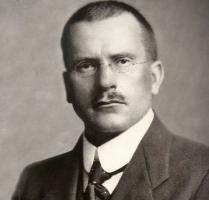Russell Barkley: biography of this psychologist and researcher
Russell Barkley is a controversial author, especially for being an expert on one of the most criticized disorders in the history of psychopathology: ADHD.
Regardless of the position one may have regarding the disorder and its intervention, both psychotherapeutic and psychopharmacology, the truth is that Russell Barkley has contributed significantly to research on the ADHD.
In this article you will find a biography of russell barkley; We are going to talk about the life of this clinical psychologist, author of multiple books and hundreds of scientific articles, as well as collaborating with multiple universities and pharmaceutical companies.
- Related article: "History of Psychology: authors and main theories"
Russell Barkley Biography
Russell Barkley is a clinical psychologist who has had a prolific professional life., working as a researcher and professor in multiple university centers, in addition to being the author of 23 books and nearly 280 scientific articles.
He has been cited by nearly 100,000 other authors specializing in the field of attention deficit hyperactivity disorder (ADHD) and scholars of clinical child psychopathology.
Early years and training
Russell A. Barkley was born on December 27, 1949 in Orange County, New York.. He was the son of a family of five children, and had a twin brother, Ronald Foster Barkley, who died in 2006 in a car accident.
Russell Barkley attributes the death of his brother to reckless behavior, such as consuming large amounts of alcohol and not wearing a seatbelt, something he has always considered symptoms of a possible case of ADHD.
He graduated from school in Maryland and spent a year in Vietnam during the war, working in the US Air Force. He married his wife Patricia his on March 15, 1969, whom he would divorce in November 2019.
Russell Barkley has earned several degrees throughout his life. He received his BA from Wayne Community College, in Goldsboro, North Carolina, in 1972. He would also earn a psychology degree from the University of North Carolina at Chapel Hill. He then he would get doctorate in clinical psychology from Bowling Green State University, in Ohio. Between 1976 and 1977 he was an intern at the University of Oregon, at its Health Sciences Center in Portland.
- You may be interested in: "Types of ADHD (characteristics, causes and symptoms)"
Career
In 1977 he would begin his professional career at the Medical College of Wisconsin and, later, at the Milwaukee Children's Hospital, where in 1978 he would found a service of neuropsychology, being chief until 1985.
He then moved to Massachusetts to work at City University Medical School, where he would serve as director of psychology from 1985 to 2000. There he would work as a professor of psychiatry and neurology. In 2005 he would join the State University of New York, where he would carry out research on psychiatry.
He also taught at the Medical University of South Carolina from 2003-2016. Since then he has taught regularly at the Virginia Commonwealth University Medical Center in Richmond, Virginia, collaborating with the department of psychiatry.
Model of deficits in behavioral inhibition
Barkley's scientific work has focused, in particular, on the study of ADHD. As we were previously commenting, this interest could be related to the fact that her twin brother met the symptoms typical of a person with this disorder, and Russell Barkley himself considered that it was a case of ADHD not diagnosed.
In 1997 he published his book ADHD and the Nature of Self Control (ADHD and the nature of self-control). It is in this book where tries to reorganize their thinking around the disorder, focusing especially on how executive function disturbances occur and how they affect the daily life of the person diagnosed with ADHD.
In this book, he proposes the model of behavioral inhibition deficits, a theoretical model that tries to explain the characteristic symptoms of people with ADHD. This model is considered one that is included within the cognitive models, and in it it is proposed that the main problem in ADHD is the difficulty to inhibit or delay the response, that is, not having the ability to avoid issuing a response that is too hasty.
Within the model, Barkley argues that executive deficits in behavioral inhibition imply a deterioration in other executive functions, which depend on this inhibition to be able to function in the most appropriate. These executive functions would be:
- Nonverbal working memory.
- Verbal working memory (internalization of speech).
- Self-regulation of emotions, motivation and activation.
- Reconstitution (analysis and synthesis of behavior)
It is for this reason and the model that Barkley proposes that the author he believes that calling this disorder "attention disorder" is not entirely accurate. He considers that it would be more appropriate to name it 'Behavioral Inhibition Disorder', since it would be the inability to Avoiding too hasty a response, which is the main cause of the problems at the cognitive level and behavioral.
Defiant Children Program
Another of Barkley's great contributions to the field of child psychology is the Defiant Children program, a program that aims to train parents to reduce the disobedience of their children. There is also a version focused on parents with adolescent children, called Your Defiant Teen.
This program is behavioral, and consists of 8 steps that try to improve the behavior of the child, his relationships with other children and adults, in addition to facilitating their adaptation at home and school. The program has been developed under the idea that a child's misbehavior is due more to factors related to the parent's educational style than to personality problems of their child. Bad parental practices are the cause of child misbehavior.
Inside the program, What is done first is to define a list of desired behaviors and that it is expected that, in the short, medium and long term, they will end up being achieved. Then, once the objective behaviors have been specified, a system of rewards and punishments is elaborated, where it is especially It is important to ignore inappropriate behaviors (as long as they are not too disruptive) or that have been carried out outside of time. The reward system is done by applying a token system.
Controversy
On November 16, 1998, Barkley made a statement that caused some controversy. He claimed that he Ritalin (methylphenidate), an ADHD drug and colloquial name of 'math pill' should be classified as one of the leading treatments to help people diagnosed with the disorder, or those who need to see their cognitive abilities increased.
A fact that has always been taken into account is that the diagnosis of ADHD is higher in the United States, which has raised questions about whether this disorder is as solid and real as one might think. Barkley was asked about this, and he replied that it should not be taken into account how other countries diagnosed the disorder, that the United States it should not care how other countries did it or allow foreign health standards to have an impact on American society.
More recently, in 2018, Barkley he was hired as a consultant at the pharmaceutical company Takeda to contribute to a digital training program for people with ADHD. This is not new, as Russell Barkley has been hired as a consultant and reader at many pharmaceutical companies: Eli Lilly, McNeil, Janssen-Orth, Janssen-Cilag, Novartis, Shire, and Theravance. These financial ties to 'Big Pharma' have led to much criticism and a possible conflict of interest in his investigations has been suggested.



